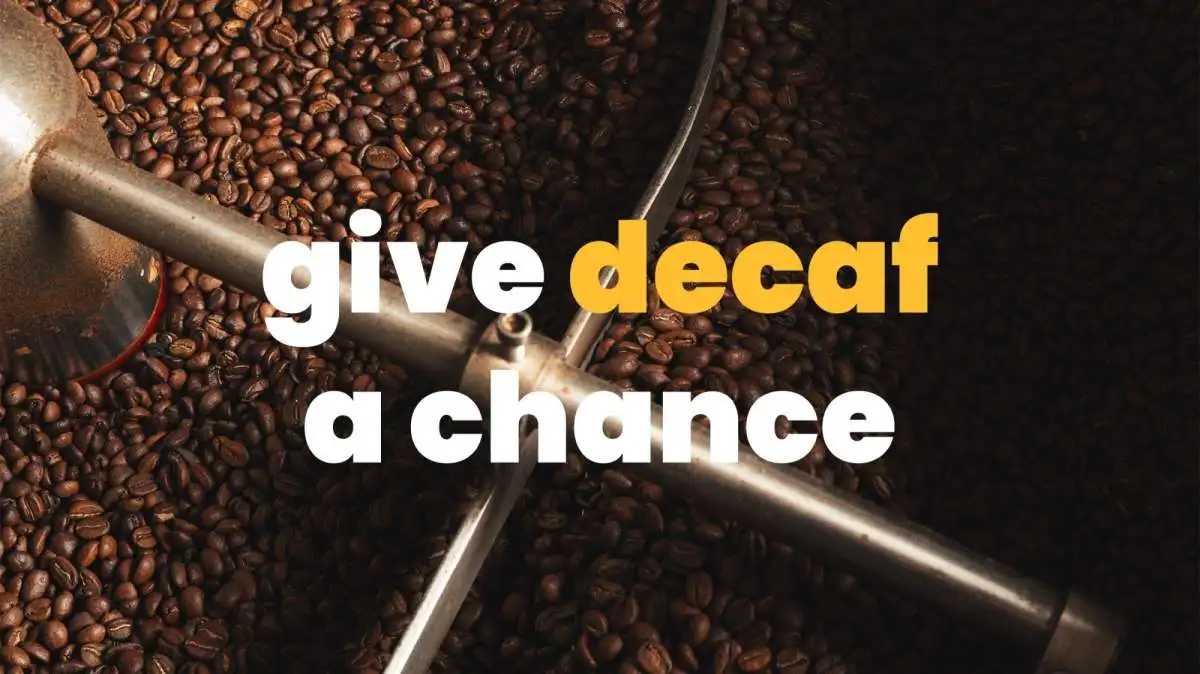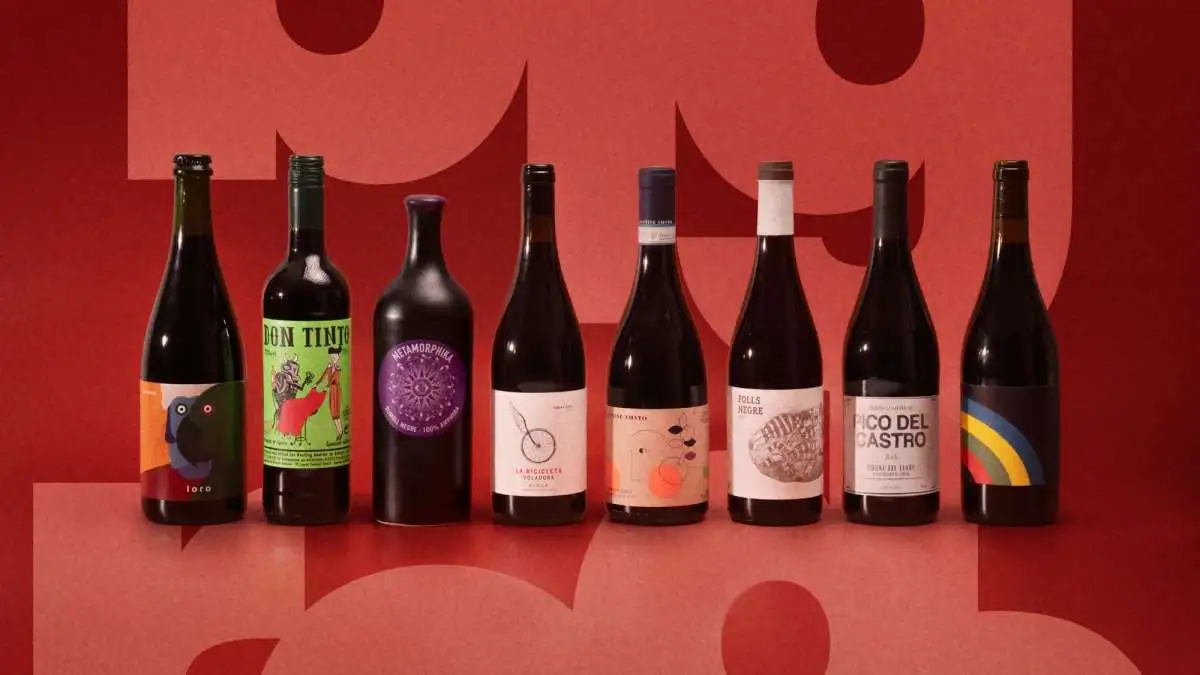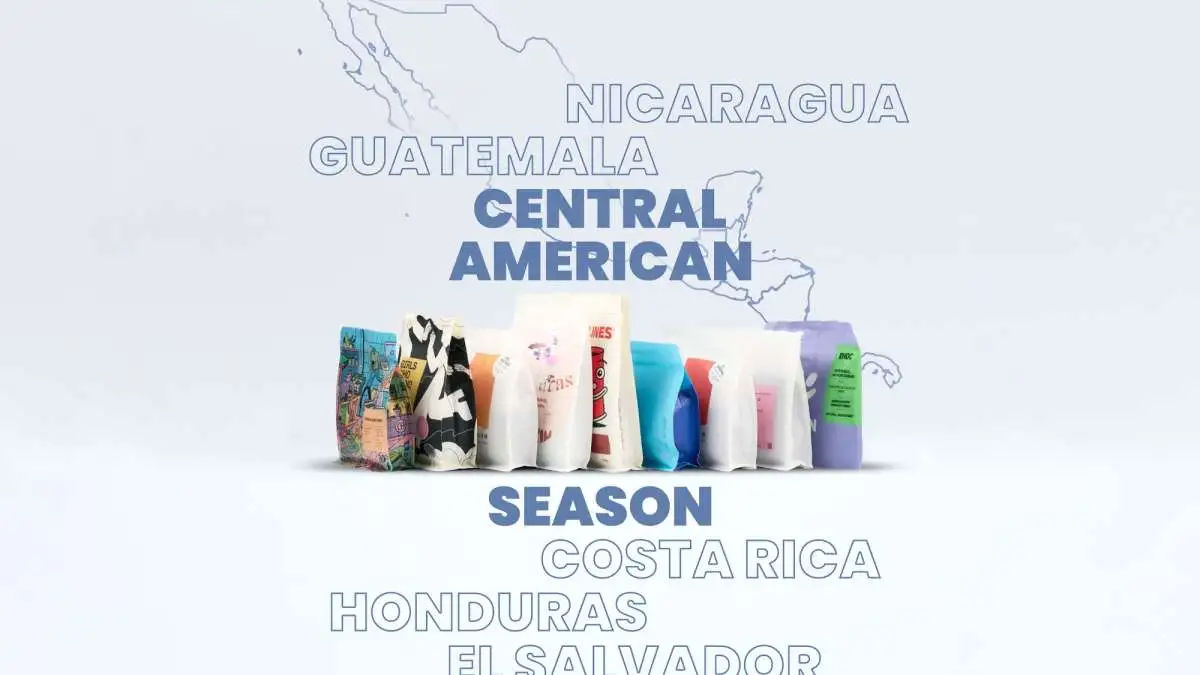Give Decaf a Chance

Read time: 4 minutes
Date published: 28 June 2024
Last updated: 05 November 2025
Decaf’s a confusing one - if you’re missing out on the caffeine, surely that should make the flavour of the coffee even more important? This hasn’t always been the case, and it’s easy to see why decaf coffee previously got hit with the ‘death before decaf’ treatment.
A combination of more discerning decaf drinkers and the specialty coffee world taking note of the need for great tasting, high quality decaf coffee has turned this sub-genre on its head.
With more choice than ever before, there’s plenty to explore for every decaf drinker.
Coffee chosen specifically for decaf
Previously, coffee may have only been selected for decaffeination at the end of its life cycle having sat in a warehouse for months on end.
To prevent surpluses like this, specialty roasters and importers now select specific green beans for decaffeination at the beginning of their life cycle. This also means that they are able to ensure a better roast profile, as decaffeinated coffee can prove challenging to roast, being more porous and absorbing heat more quickly during the roasting process.
Decaf processing methods
A common belief is that decaf coffee comes from a different variety that naturally grows without caffeine. Currently, there is no such thing as a genetically decaffeinated coffee so the caffeine must be physically removed.
Thankfully, roasters now have several sophisticated decaffeination methods to choose from when buying green beans, all with different implications for flavour.
CO2 / Sparkling Water Process
In this certified organic method, ‘sub-critical’ liquid carbon dioxide is combined with water (essentially forming sparkling water) where it circulates through the beans and acts like a magnet, drawing out caffeine molecules in a process which is rinsed and repeated until a max caffeine content of 0.08% is reached. The good caffeine selectivity of this liquid carbon dioxide maintains other coffee components which contribute to taste and aroma. This Natural Carbon Dioxide Decaffeination process was developed by German company CR3 in 1988, who remain the only company to process in this way.
Swiss Water Process
The Swiss Water Process is an organic, chemical-free method of decaffeination, invented in Switzerland in the 1930s and commercialised in Canada in the 1980s.
SWP decaffeination relies on the creation of a supersaturated green coffee solution called Green Coffee Extract (GCE). GCE is circulated with the coffee for up to 10 hours, until less than 0.1% of caffeine remains in the green beans.
As GCE is already saturated with all the compounds found in green coffee except for caffeine, the matching molecules won’t diffuse out of the coffee beans - but the caffeine will and is removed using a carbon filter.
Sugar Cane / Ethyl Acetate
Sugarcane, E.A., or Colombia decaf is a clean and green way of decaffeinating coffee beans. The completely harmless natural compound Ethyl Acetate is formed from fermenting sugarcane molasses. Green beans are then washed in this sugarcane derived EA and water, where the EA bonds with caffeine molecules and is then flushed away. This process of draining and washing is repeated until the caffeine is no longer detectable at which point the coffee is vacuum dried.
Originating in Colombia, this method is becoming an increasingly popular way to decaffeinate coffee.
Solvent
Another common commercial decaf method uses a chemical solvent, most often Methylene Chloride or synthetic Ethyl Acetate, combined with a rinsing process that draws out the caffeine. This can work in either a Direct-Solvent Process (Beans are exposed to the solvent directly) or an Indirect-Solvent Process (Beans are first soaked in water and then once the water has soaked up all the caffeine, it is separated from the beans. The water is treated with the solvent to remove the caffeine and then returned to the beans in the hopes of returning other solubles to the beans). This method is less preferred by roasters and importers as it is a less gentle and discriminatory process than other methods, and often results in other solubles being extracted from the beans.
Is decaf coffee fully decaffeinated?
Modern decaffeination methods mean that a large percentage of the caffeine is removed from coffee. UK regulations dictate that caffeine content in green beans labelled as decaf ‘does not exceed 0.1%’ (i.e. in a 250g bag of decaf coffee beans, there should not be more than 0.25 grams of caffeine).
So no decaf coffee is truly decaf free, but the amount remaining is considered negligible in terms of its impact on the body.
More from drop

13 February 2026

30 January 2026

21 January 2026

01 December 2025

15 October 2025

29 August 2025

16 May 2025

17 January 2025

